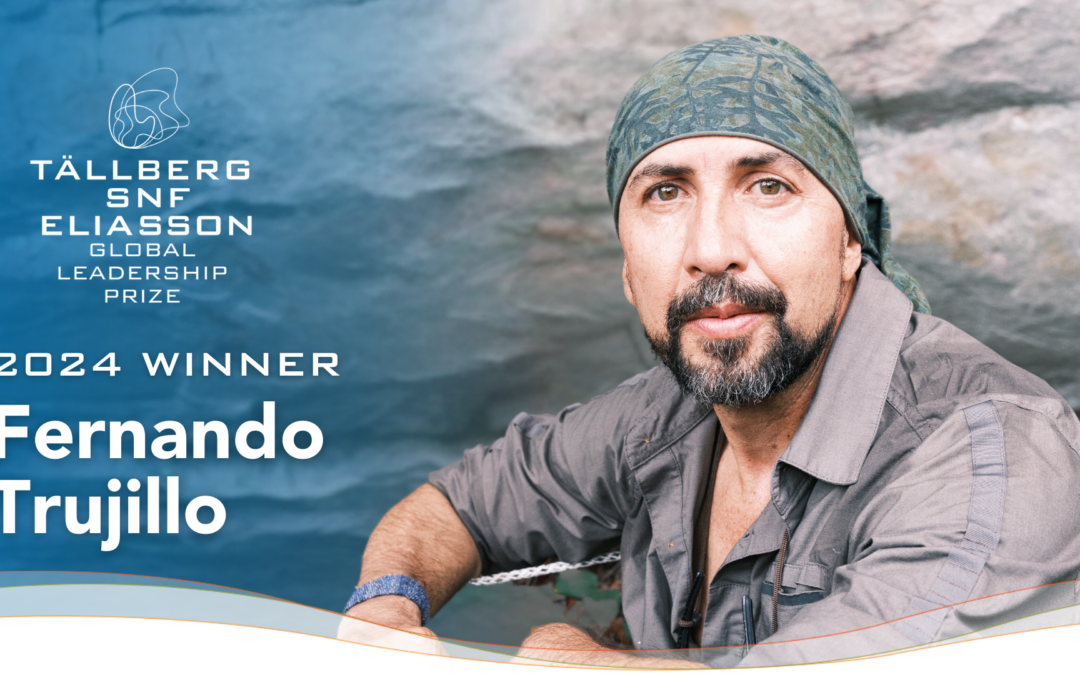From Scientist to Conservation Leader
Fernando Trujillo’s journey began with a simple idea: to save the Amazon’s river dolphins. There are only six extant species of river dolphins left in the world today and they are all endangered. But over the past three decades, his mission has expanded into something much larger—protecting entire river ecosystems, the communities that depend on them, and the Amazon itself.
As a National Geographic explorer and the scientific director of the Omacha Foundation, Trujillo has transformed his early passion for wildlife into a comprehensive strategy for environmental conservation. “I started wanting to protect dolphins,” he recalls, “but soon realized that to save the dolphins, I had to save the rivers, the forests, and the people.”
A Vision for Ecosystem Protection
Trujillo’s work has turned river dolphins into powerful ambassadors for the protection of the Amazon and Orinoco rivers. “Thirty years ago, nobody knew about these dolphins,” he says. “Today, they are symbols of the crisis facing the Amazon.” By focusing on these charismatic animals, Trujillo has drawn global attention to the environmental challenges in one of the planet’s most biodiverse regions.
Under his leadership, the Omacha Foundation, as part of the South American River Dolphins Initiative (SARDI), has surveyed over 80,000 kilometers of rivers, trained more than 500 researchers and local people, and helped create protected areas in six countries. Trujillo has also worked to build conservation policies at the regional and global levels, ensuring that the Amazon remains a priority for governments and international organizations–and that other great river systems also benefit from the knowledge Omacha generates.
A Champion for Local Communities
Trujillo understands that conservation efforts cannot succeed without the involvement of local communities. His work goes beyond scientific research to include advocacy for the rights and livelihoods of indigenous peoples and rural populations living along the Amazon’s rivers.
“We can’t protect the environment without the people who live in it,” he explains. Through his foundation, Trujillo has developed partnerships with local communities to promote sustainable practices, improve livelihoods, and raise awareness about the importance of conserving the Amazon’s natural resources. His work has empowered these communities to take an active role in protecting their environment.
Innovation in Conservation
Trujillo’s approach to conservation is innovative and far-reaching. He has led large-scale scientific expeditions, pioneered the use of satellite tagging for dolphins, and worked with governments to designate key aquatic ecosystems as Ramsar sites—wetlands of international importance. These efforts have resulted in the creation of millions of hectares of protected areas, ensuring that vital habitats are preserved for future generations.
Trujillo’s leadership has also extended to the political sphere, where he has lobbied for stronger environmental protections at both the national and international levels. His work has contributed to the creation of a global declaration for rivers and river dolphins, with 11 countries already signing on to the agreement. “We are putting in place the policies needed to protect not just the dolphins, but the entire Amazon ecosystem,” he says.
A Legacy of Conservation and Leadership
Fernando Trujillo’s leadership has begun to transform how the world views the Amazon’s rivers and wildlife. By turning the plight of river dolphins into a symbol of broader environmental challenges, he has built a movement that spans continents and brings together scientists, communities, and governments.
With his innovative strategies, global partnerships, and deep commitment to both nature and people, Trujillo is leading the charge to protect one of the world’s most critical ecosystems. His work is a testament to the power of combining science, advocacy, and community engagement in the fight to save our planet.



Hello,
I’m a retired teacher living in Vancouver, British Columbia, Canada, and have been studying the Amazon river dolphins with one of my students. She is a ten year old girl who is fascinated with Trujillo’s work. She composed a letter to Fernando asking him some questions about his work and wondering how she might help. How would we send this letter to him? Thank you.
Sincerely,
Sylvia Hannah
Dear Sylvia,
We are delighted to hear about your student’s fascination with Fernando’s work. The best thing to do is to send a letter directly to his organization, Omacha, in Colombia. You can find contact information at the bottom of the page here:https://omacha.org/